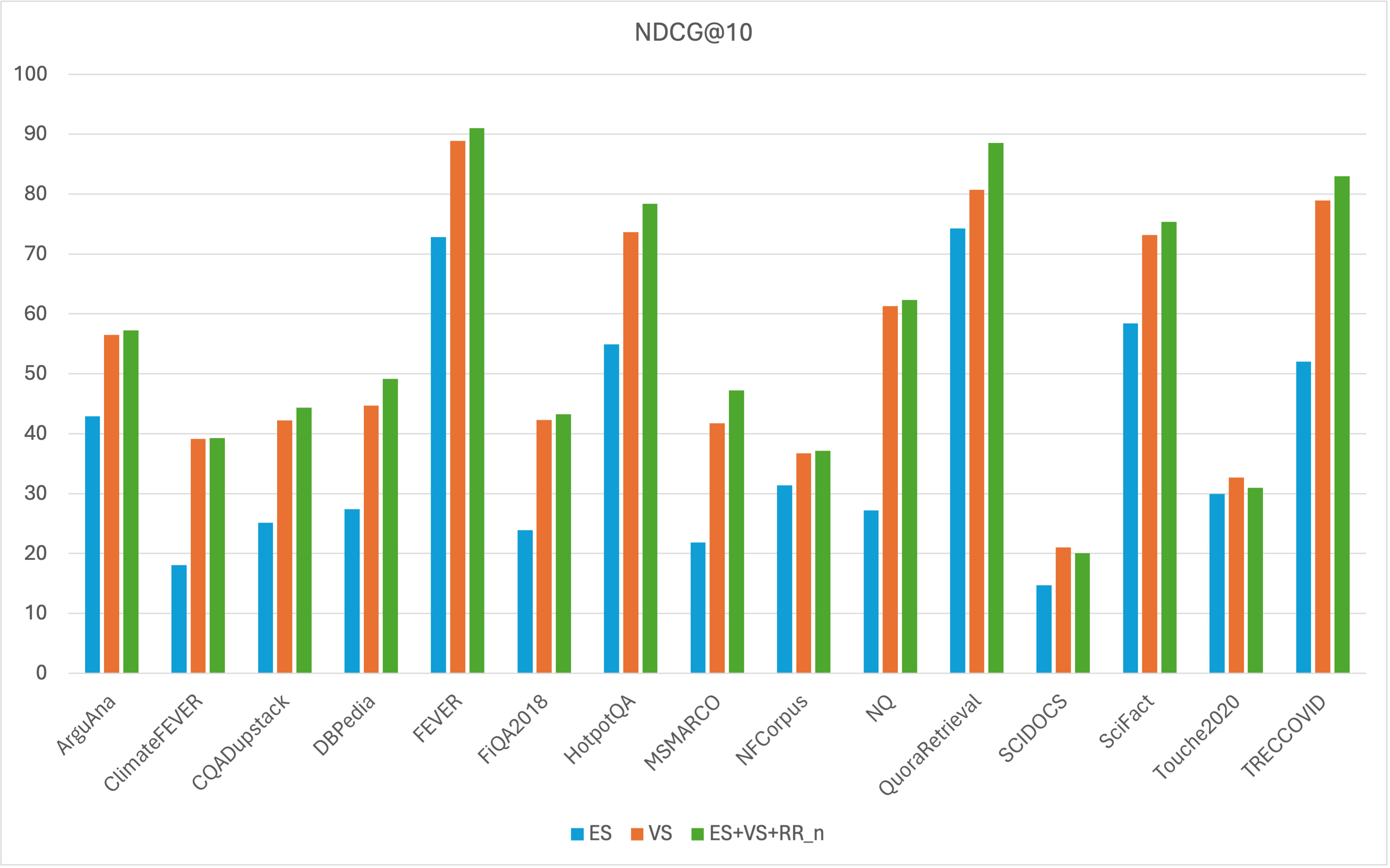An enterprise-grade AI agent designed to streamline AI integration into your applications, ensuring cutting-edge accuracy.
etura agent combines multiple search technologies into a single platform. It utilizes gradient boosting ( xgboost) machine learning technique to combine:
- Keyword-based searches that focus on fetching precisely what the query mentions.
- Vector databases that are great for finding a wide range of potentially relevant answers.
- Machine Learning rerankers that fine-tune the results to ensure the most relevant answers top the list.
- Our experiments on MTEB datasets show that the combination of keyword search, vector search and a reranker via a xgboost model (denoted as ES+VS+RR_n) can significantly improve the vector search (VS) baseline.
- Check out etura agent experiments using the Anthropic Contextual Retrieval dataset at here.
The initial release of etura agent provides the following features.
- Supporting heterogeneous agents such as keyword search, vector search, and ML model reranking
- Leveraging xgboost ML technique to effectively combine heterogeneous agents
- State-of-the-art accuracy on MTEB Retrieval benchmarking
- Demonstrating how to use etura agent to power an end-to-end applications such as chatbot and semantic search
We recommend installing Python via Anaconda, as we have received feedback about issues with Numpy installation when using the installer from https://www.python.org/downloads/. We are working on providing a solution to this problem. To install etura agent, you can run:
pip install git+https://github.com/etura-org/etura.git#mainpoetry add git+https://github.com/etura-org/etura.git#mainThe official documentation is hosted on agent.etura.ai. Click here to get started.
You can start developing etura agent on your local machine.
See DEVELOPMENT.md for more details.
This project is licensed under the terms of the MIT license.
See LICENSE for more details.
@misc{etura,
author = {etura-org},
title = {An enterprise-grade AI agent designed to streamline AI integration into your applications, ensuring cutting-edge accuracy.},
year = {2024},
publisher = {GitHub},
journal = {GitHub repository},
howpublished = {\url{https://github.com/etura-org/etura}}
}



